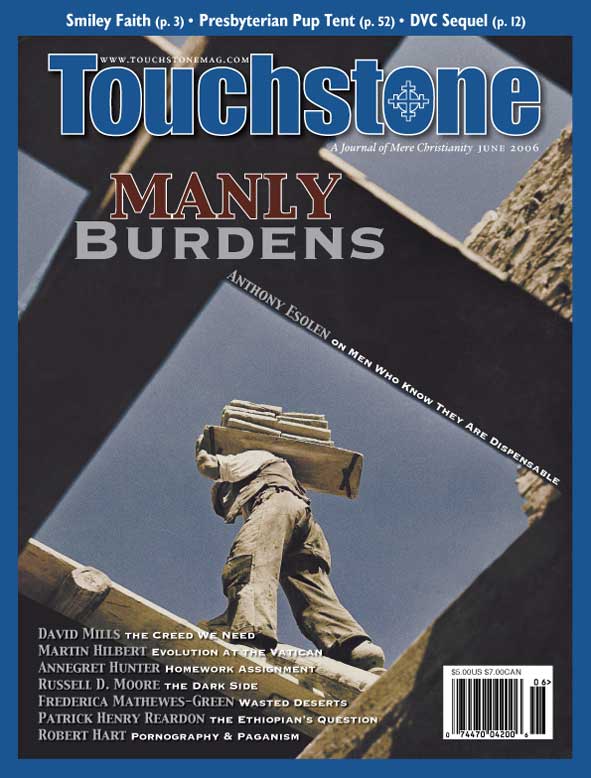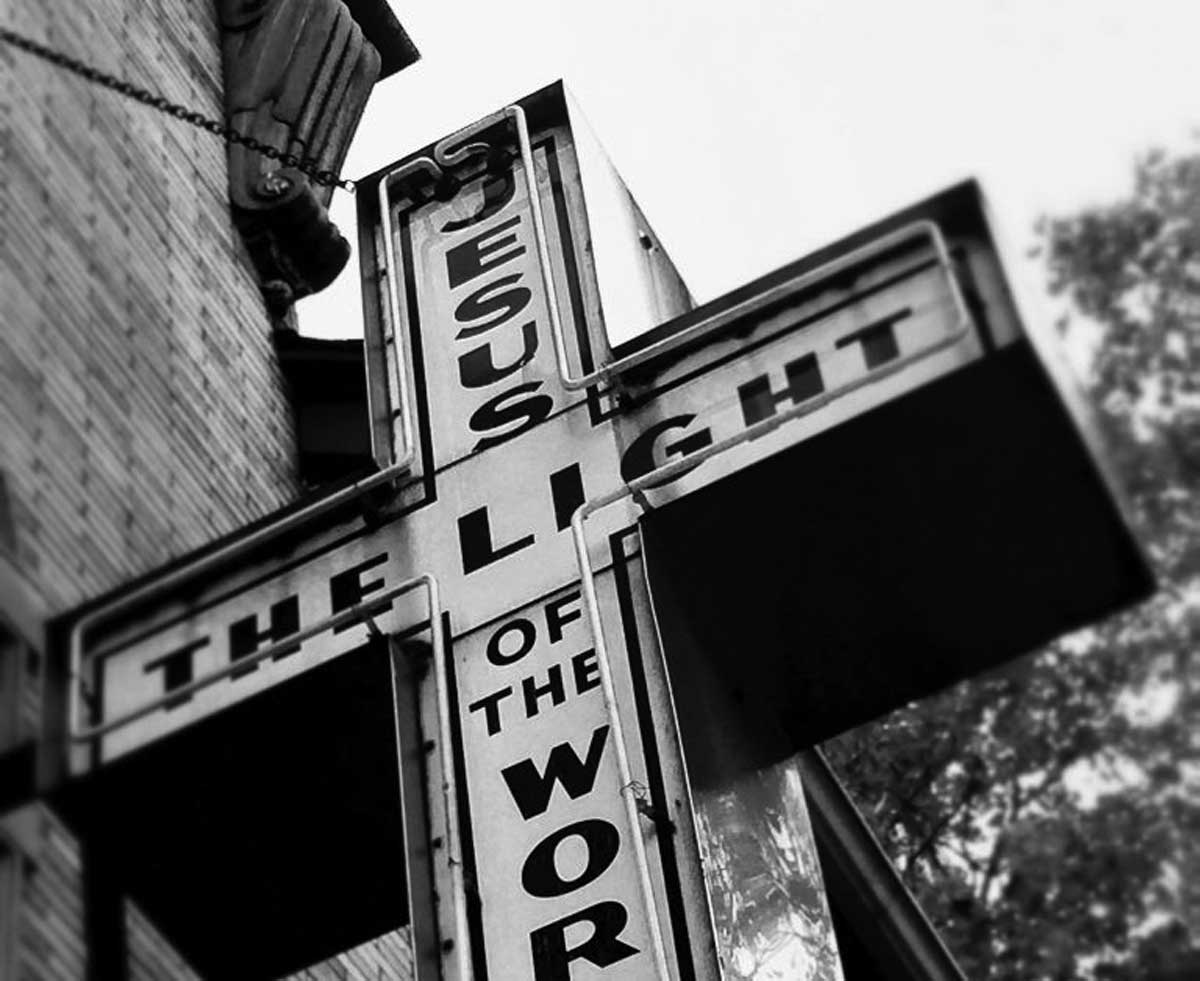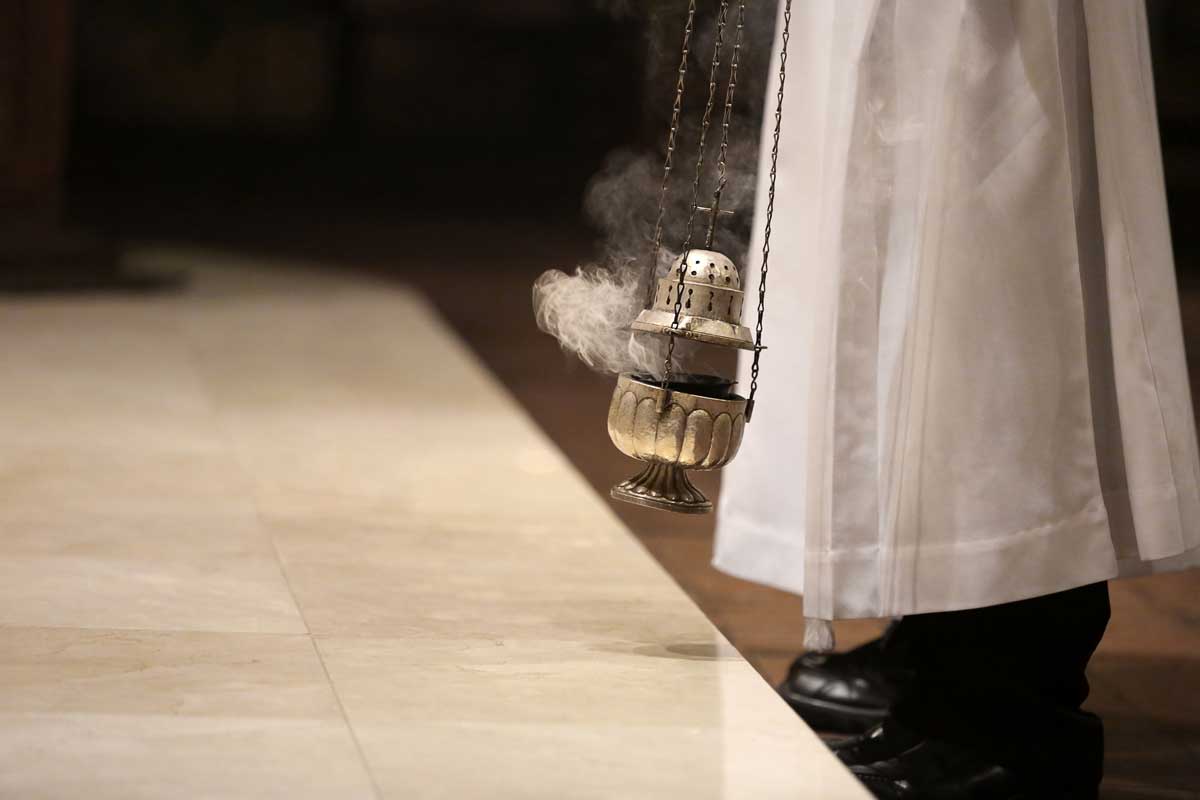Feature
The Creed We Need
On the Picture of God We Draw with Words
by David Mills
God is “agapic love,” the preacher said, and paused. “God”—I knew what was coming, the man being mired in the sixties—“is a verb.” He assured the congregation that as long as they were “doing agapic love,” that—left undefined—was all they needed to do. I could hear around me the sighs of people who have heard something they wanted to hear.
“God is a verb” is about as much doctrinal complexity as many American Christians seem to want, vague and useless as it is. They do not want anything too precise and specific, for that means exclusive, intellectual, and binding, nor anything too old, for that means irrelevant.
Average Agnostics
The average American thinks that when lots of nice people follow different religions, no religion should claim to be true in such a way that the others must be false. Everyone is happier, and no one will start fighting, when religion is a matter of taste, enjoyed privately, like an ethnic food. No one minds if a Scotsman eats haggis, as long as he eats it behind closed doors, but no one would tolerate his attempt to make it the sole main course in the high-school cafeteria.
The non-religious will explain their dislike of doctrines by saying that we ought to live and let live, that people are different, that religion is a private matter, and the like. The religious will explain it in two ways. One type (the believer) will say that Christianity is a matter of the heart, or a personal relationship with Christ, or that he has no creed but the Bible. The other type (the skeptic or liberal) will say that all religions seek the divine power which lives “beyond the images that bind and blind us all,” as one modern heretic once put it, or that we are all climbing different slopes of the same mountain, or that we are all blind men trying to describe an elephant.
If he is consciously religious, this modern American also dislikes being bound to the kind of creeds and confessions most churches require (in theory) of their members. (In some churches these confessions have not been articulated, but they are understood and enforced nonetheless.) He wants his beliefs put broadly and vaguely, flexibly and changeably.
And he deeply dislikes the technical language of theology. He will tell you that phrases like “begotten not made” and “of one being” do not mean anything useful or (if he is more learned) that these words represent not the ancients’ idea of Christian truth but one party’s victory in an essentially political contest.
If he has read his postmodern writers, he may say that the doctrinal statements mark a community’s shared identity but do not establish a truth to which it is bound (the Fatherhood of God being our way of saying that the universe is personal), or that they help one group oppress another (men assert the Fatherhood of God to justify the power of men over women).
This kind of Christian rejects doctrinal rigor mainly in religion. He does not want his surgeon to be as vague about his heart as he expects his church to be about Christology, nor his mechanic to call the carburetor “that thing on top that sends the gas around” though he would be happy to hear his pastor call the Holy Spirit “a kind of power God sends us.”
He does not want his accountant to treat the technical language of tax law as irrelevant to real life, nor the architect who designed the building in which he works to declare the laws of physics merely a political victory of one party over the other in the early modern period. He does not want the umpire at home plate to insist that the strike zone is merely a matter of identity (baseball has to have a strike zone to be baseball), he wants him to see it as something already defined that binds the pitcher, the batter, and himself.
David Mills has been editor of Touchstone and executive editor of First Things. He edits the opinion page of the Pittsburgh Post-Gazette.
subscription options
Order
Print/Online Subscription

Get six issues (one year) of Touchstone PLUS full online access including pdf downloads for only $39.95. That's only $3.34 per month!
Order
Online Only
Subscription

Get a one-year full-access subscription to the Touchstone online archives for only $19.95. That's only $1.66 per month!
bulk subscriptions
Order Touchstone subscriptions in bulk and save $10 per sub! Each subscription includes 6 issues of Touchstone plus full online access to touchstonemag.com—including archives, videos, and pdf downloads of recent issues for only $29.95 each! Great for churches or study groups.
Transactions will be processed on a secure server.
more on ecumenism from the online archives
more from the online archives
calling all readers
Please Donate
"There are magazines worth reading but few worth saving . . . Touchstone is just such a magazine."
—Alice von Hildebrand
"Here we do not concede one square millimeter of territory to falsehood, folly, contemporary sentimentality, or fashion. We speak the truth, and let God be our judge. . . . Touchstone is the one committedly Christian conservative journal."
—Anthony Esolen, Touchstone senior editor












